 Menopause brings significant changes to the body, often affecting sleep, stress levels, and overall well-being. While it’s a natural phase of life, its symptoms—like insomnia, anxiety, hot flashes, and joint stiffness—can be challenging to manage.
Yoga is a powerful tool for navigating menopause, offering relief through gentle movement, deep breathing, and relaxation techniques. Studies suggest that yoga can improve sleep, reduce stress, and support hormone balance, making it a holistic approach to menopause wellness.
Menopause brings significant changes to the body, often affecting sleep, stress levels, and overall well-being. While it’s a natural phase of life, its symptoms—like insomnia, anxiety, hot flashes, and joint stiffness—can be challenging to manage.
Yoga is a powerful tool for navigating menopause, offering relief through gentle movement, deep breathing, and relaxation techniques. Studies suggest that yoga can improve sleep, reduce stress, and support hormone balance, making it a holistic approach to menopause wellness.

 Turning 40 is a major milestone, and it’s the perfect time to take a proactive approach to your health.
As your body undergoes natural changes, prioritizing wellness becomes more important than ever.
Many women over 40 experience shifts in metabolism, hormonal balance, and bone density, making it crucial to adopt healthy habits that promote longevity and vitality. This guide provides a comprehensive checklist to help you stay strong, energized, and confident in your health journey.
Turning 40 is a major milestone, and it’s the perfect time to take a proactive approach to your health.
As your body undergoes natural changes, prioritizing wellness becomes more important than ever.
Many women over 40 experience shifts in metabolism, hormonal balance, and bone density, making it crucial to adopt healthy habits that promote longevity and vitality. This guide provides a comprehensive checklist to help you stay strong, energized, and confident in your health journey.
 Menopause is a natural transition, but it comes with hormonal shifts that can trigger a range of symptoms, from hot flashes to sleep disturbances. While lifestyle factors play a role in managing these changes, alcohol consumption is often overlooked as a key influence on menopause symptoms and overall health.
Research suggests that alcohol can worsen common menopause symptoms, impact hormone levels, and increase the risk of long-term health concerns such as osteoporosis and heart disease. Understanding how alcohol affects the body during menopause can help you make informed choices that support your well-being.
Menopause is a natural transition, but it comes with hormonal shifts that can trigger a range of symptoms, from hot flashes to sleep disturbances. While lifestyle factors play a role in managing these changes, alcohol consumption is often overlooked as a key influence on menopause symptoms and overall health.
Research suggests that alcohol can worsen common menopause symptoms, impact hormone levels, and increase the risk of long-term health concerns such as osteoporosis and heart disease. Understanding how alcohol affects the body during menopause can help you make informed choices that support your well-being.

 Menopause is a natural phase of life, but it often comes with physical, emotional, and mental challenges that can feel overwhelming.
From fluctuating hormones to disrupted sleep and mood changes, many women struggle to maintain their sense of wellbeing during this transition.
The good news? There are practical and science-backed ways to manage menopause symptoms and improve overall health.
With the right lifestyle habits, dietary choices, and self-care practices, you can navigate menopause with confidence and vitality.
Menopause is a natural phase of life, but it often comes with physical, emotional, and mental challenges that can feel overwhelming.
From fluctuating hormones to disrupted sleep and mood changes, many women struggle to maintain their sense of wellbeing during this transition.
The good news? There are practical and science-backed ways to manage menopause symptoms and improve overall health.
With the right lifestyle habits, dietary choices, and self-care practices, you can navigate menopause with confidence and vitality.

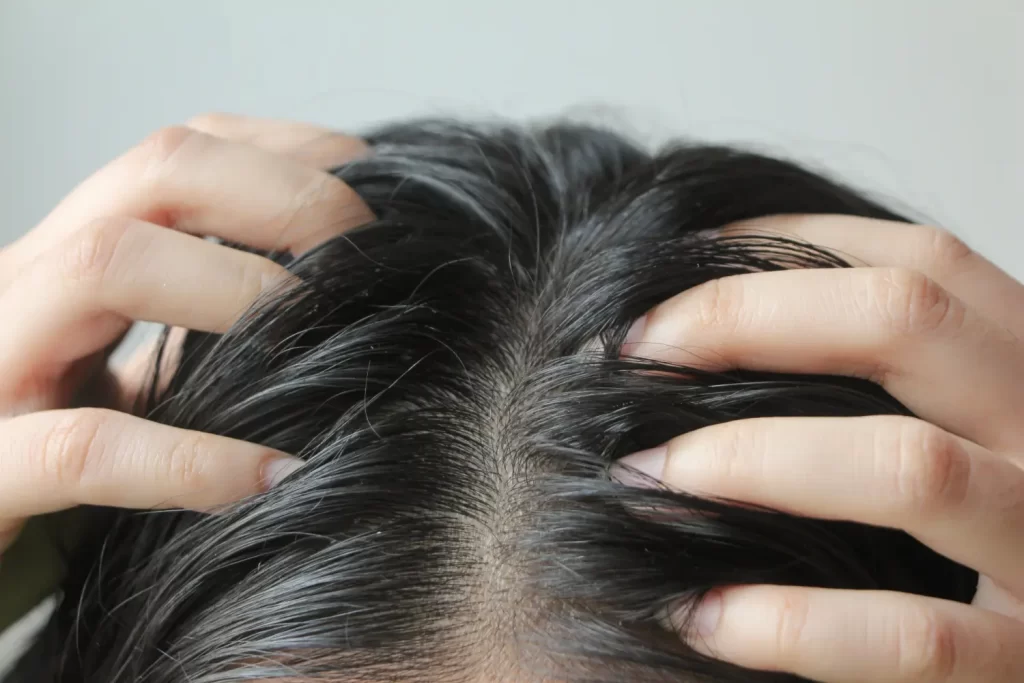 You know that dry scalp and thinning hair you’ve been dealing with? Well, it could be due to menopause. Menopause brings many changes to a woman’s body, and the scalp and hair are no exceptions.
If you’re noticing dryness, thinning, or scalp sensitivity, you’re not alone—these are common challenges that require a gentle and targeted hair care routine for menopausal scalp health. What does that look like? Well, let’s look into some practical steps to restore balance and maintain vibrant hair during this transition.
You know that dry scalp and thinning hair you’ve been dealing with? Well, it could be due to menopause. Menopause brings many changes to a woman’s body, and the scalp and hair are no exceptions.
If you’re noticing dryness, thinning, or scalp sensitivity, you’re not alone—these are common challenges that require a gentle and targeted hair care routine for menopausal scalp health. What does that look like? Well, let’s look into some practical steps to restore balance and maintain vibrant hair during this transition.
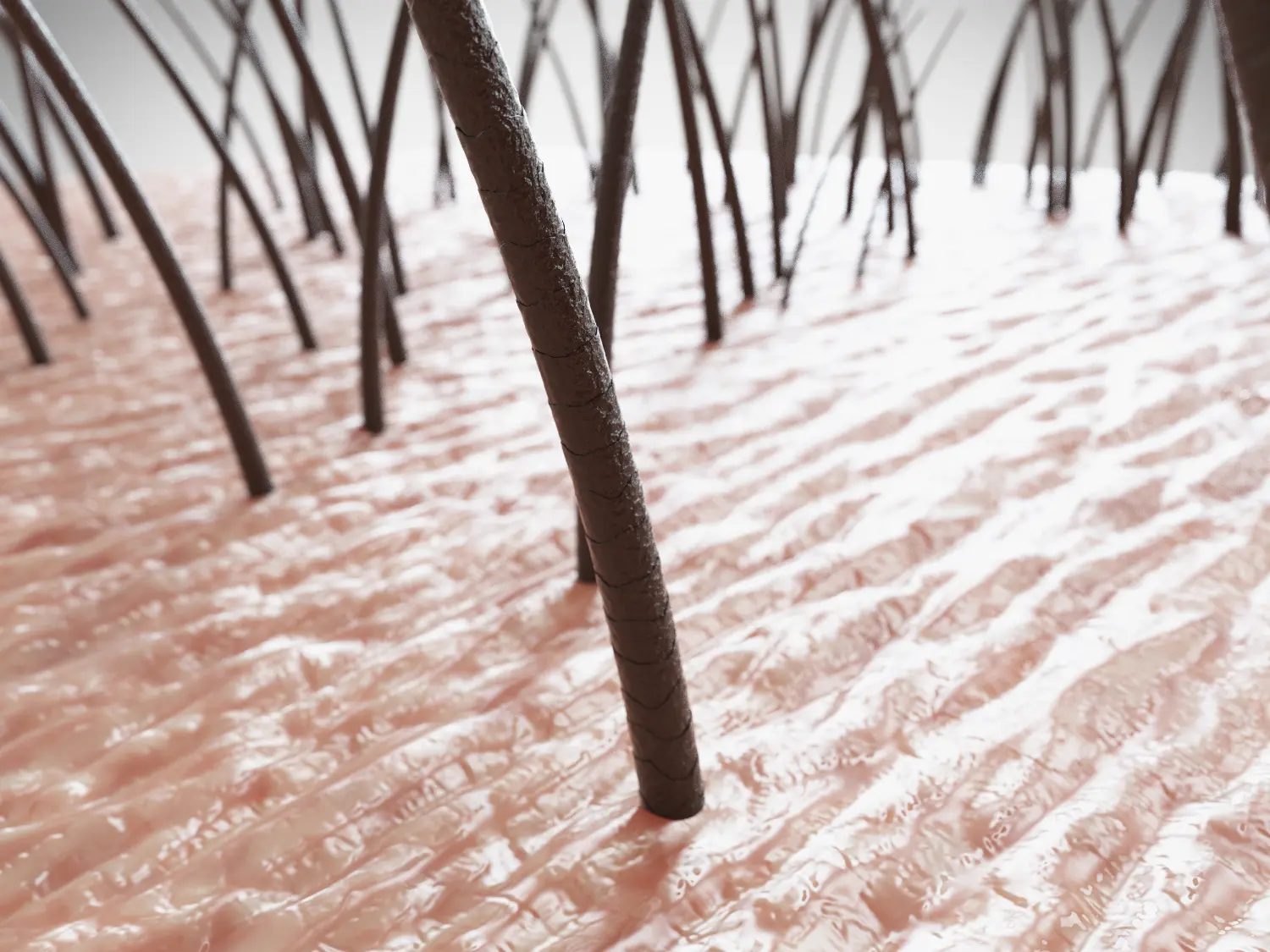
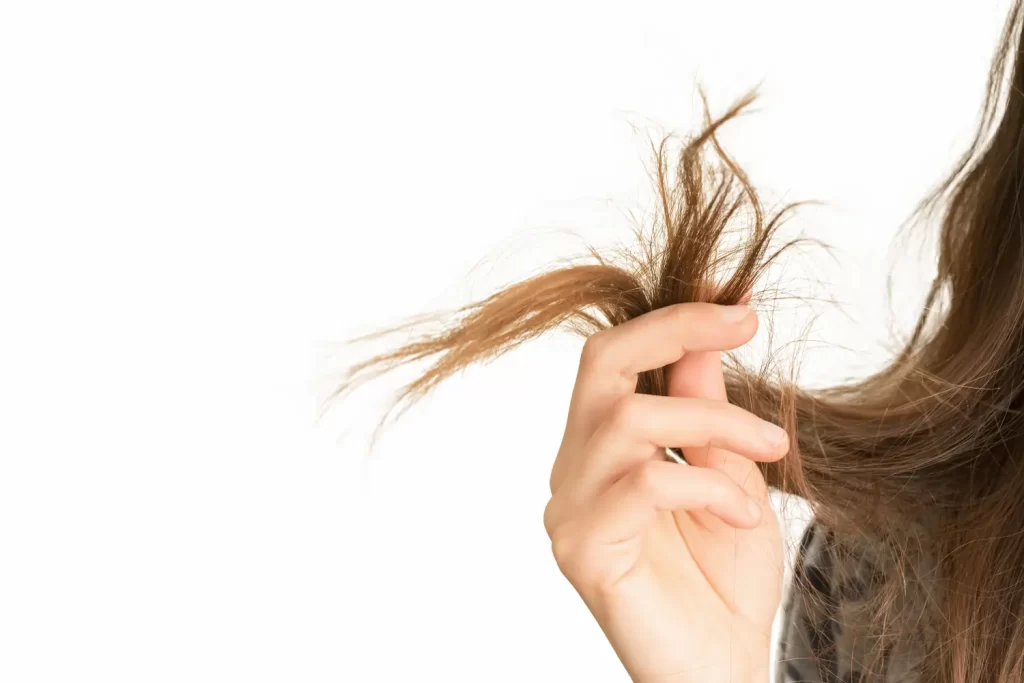 Split ends, those frayed, brittle tips that make your hair look dry and damaged, are more than just a cosmetic annoyance. These pesky splits indicate that your hair is unhealthy due to internal damage. Women experiencing menopause may see split ends appearing with greater frequency than before.
Why? Menopause causes natural estrogen levels to decrease which creates problems for your hair because estrogen helps maintain its strength and moisture. The reduction of this hormone causes hair to lose moisture and thickness while becoming more brittle which leads to the formation and progression of split ends. Your hair strands begin to show visible damage when exposed to daily stress factors such as heat styling or sun exposure while brushing.
But there’s good news: Split ends during menopause can be successfully treated and do not constitute a permanent condition. Let’s learn more about what causes split ends and proven solutions, including daily hair care routines and salon treatments, along with product suggestions and lifestyle changes to help restore your hair's strength and health.
Split ends, those frayed, brittle tips that make your hair look dry and damaged, are more than just a cosmetic annoyance. These pesky splits indicate that your hair is unhealthy due to internal damage. Women experiencing menopause may see split ends appearing with greater frequency than before.
Why? Menopause causes natural estrogen levels to decrease which creates problems for your hair because estrogen helps maintain its strength and moisture. The reduction of this hormone causes hair to lose moisture and thickness while becoming more brittle which leads to the formation and progression of split ends. Your hair strands begin to show visible damage when exposed to daily stress factors such as heat styling or sun exposure while brushing.
But there’s good news: Split ends during menopause can be successfully treated and do not constitute a permanent condition. Let’s learn more about what causes split ends and proven solutions, including daily hair care routines and salon treatments, along with product suggestions and lifestyle changes to help restore your hair's strength and health.

 Menopause brings a variety of changes, and one of the most frustrating is its impact on hair health.
If you’ve noticed your hair feeling thinner, drier, or more brittle during menopause, you’re not alone — and the good news is, there are proven ways to nurture and strengthen your hair during this stage of life. In this article, we’ll share simple, effective tips to help you care for your hair with confidence, vitality, and grace.
Menopause brings a variety of changes, and one of the most frustrating is its impact on hair health.
If you’ve noticed your hair feeling thinner, drier, or more brittle during menopause, you’re not alone — and the good news is, there are proven ways to nurture and strengthen your hair during this stage of life. In this article, we’ll share simple, effective tips to help you care for your hair with confidence, vitality, and grace.
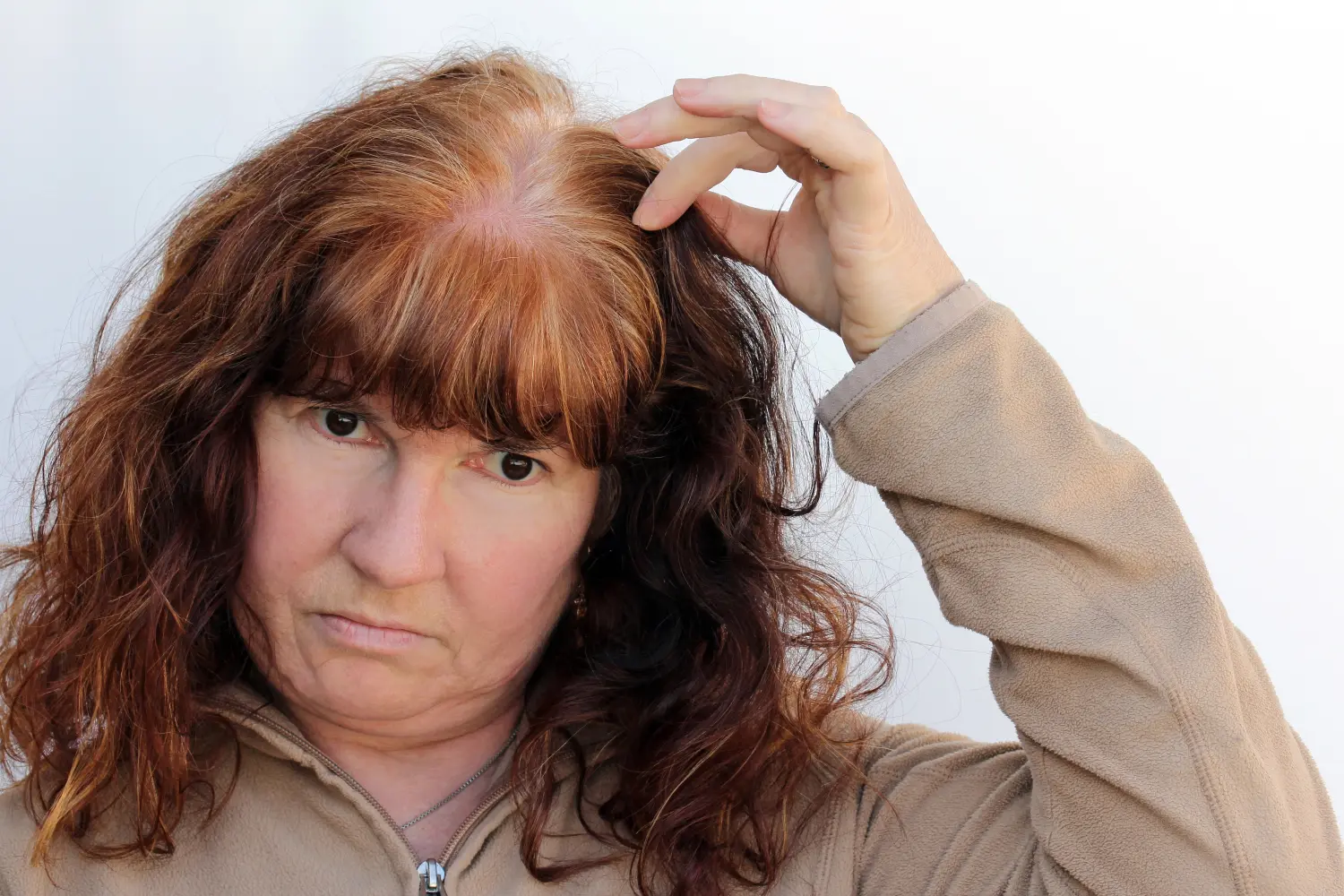
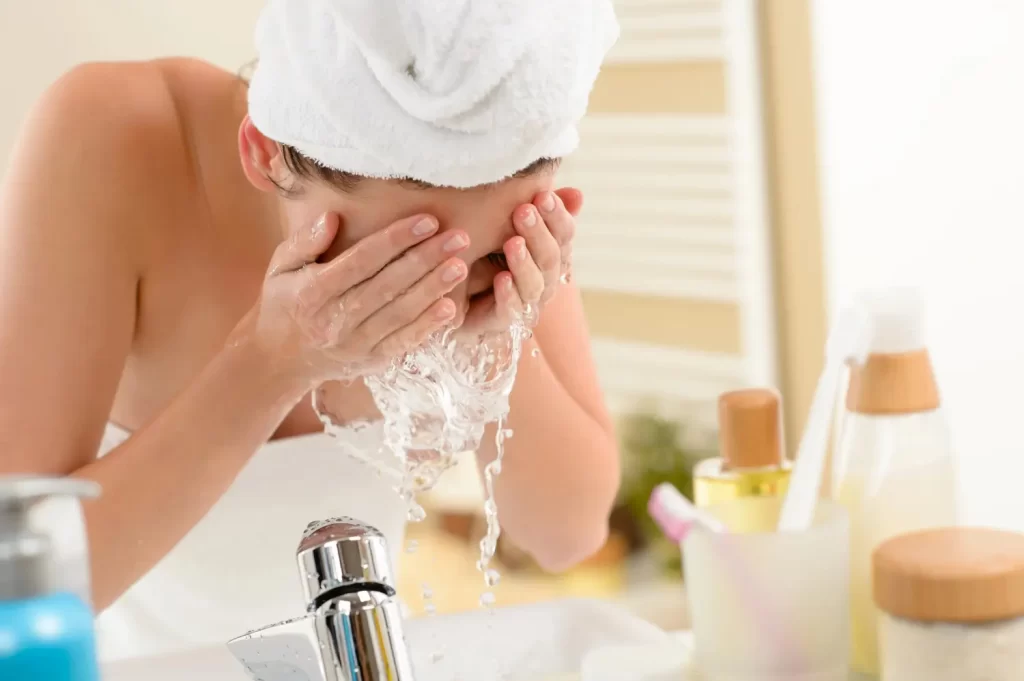 Wrinkles might attract attention but the true narrative of menopausal skin extends beyond the surface. The reduction of estrogen leads to skin that becomes noticeably drier with thinner texture and increased sensitivity. Fine lines become more noticeable and your skin loses its brightness which makes your usual skincare routine ineffective.
Menopause extends beyond hormonal changes and deeply transforms your skin's structure and function. The combination of reduced collagen production, diminished natural oils and a compromised skin barrier requires your skin to have additional support rather than exposure to harsh products.
But here’s the good news: Applying the correct skincare strategy during menopause allows skin to reach optimum health.
This guide presents 10 expert-supported skincare tips which address the specific needs of menopausal skin. These skincare tips will guide you back to skin confidence through steps to boost hydration and rebuild your skin barrier alongside selecting proper anti-aging ingredients and consulting a dermatologist when necessary.
Wrinkles might attract attention but the true narrative of menopausal skin extends beyond the surface. The reduction of estrogen leads to skin that becomes noticeably drier with thinner texture and increased sensitivity. Fine lines become more noticeable and your skin loses its brightness which makes your usual skincare routine ineffective.
Menopause extends beyond hormonal changes and deeply transforms your skin's structure and function. The combination of reduced collagen production, diminished natural oils and a compromised skin barrier requires your skin to have additional support rather than exposure to harsh products.
But here’s the good news: Applying the correct skincare strategy during menopause allows skin to reach optimum health.
This guide presents 10 expert-supported skincare tips which address the specific needs of menopausal skin. These skincare tips will guide you back to skin confidence through steps to boost hydration and rebuild your skin barrier alongside selecting proper anti-aging ingredients and consulting a dermatologist when necessary.

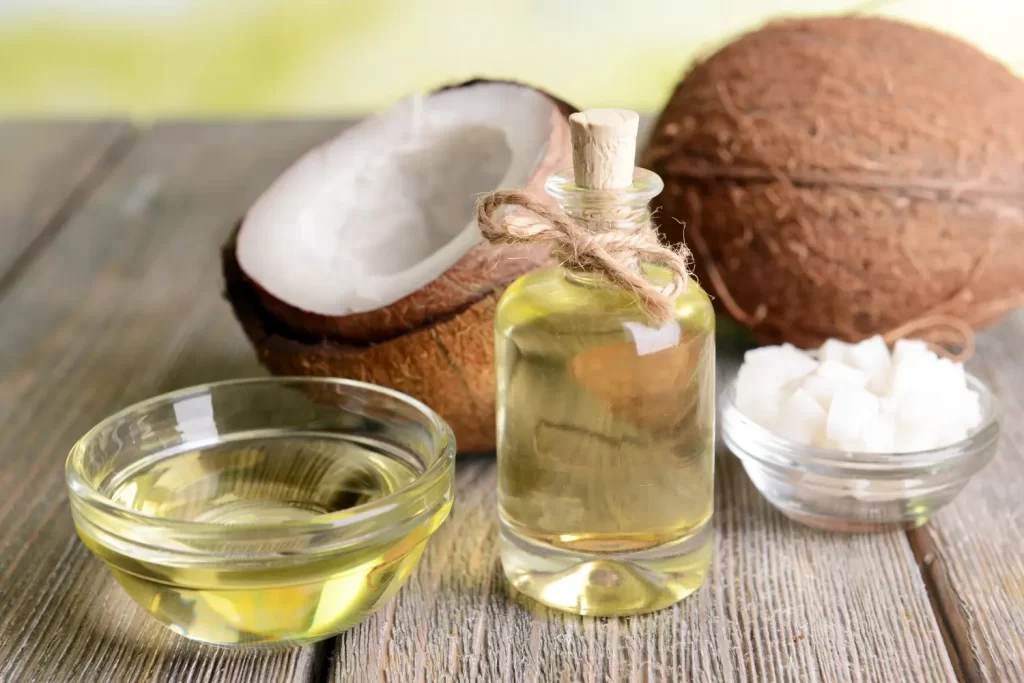 Dryness. Breakage. Thinning. As estrogen and progesterone levels fall during midlife, women often experience split strands and brittle hair alongside diminished shine. The reduction of these essential hormones results in weaker hair strands because their purpose is to maintain scalp nourishment and hair strength.
A natural remedy that has been trusted through generations has recently gained renewed attention because of its simplicity and benefits: coconut oil.
Coconut oil contains nourishing fatty acids and healing properties which allow it to restore softness, moisture, and strength to menopausal hair affordably and effortlessly. Get ready to learn why coconut oil works well on aging hair and the proper application method while offering advice on lifestyle adjustments to maximize results. Coconut oil presents a gentle yet effective solution that might help restore vitality to your hair strands.
Dryness. Breakage. Thinning. As estrogen and progesterone levels fall during midlife, women often experience split strands and brittle hair alongside diminished shine. The reduction of these essential hormones results in weaker hair strands because their purpose is to maintain scalp nourishment and hair strength.
A natural remedy that has been trusted through generations has recently gained renewed attention because of its simplicity and benefits: coconut oil.
Coconut oil contains nourishing fatty acids and healing properties which allow it to restore softness, moisture, and strength to menopausal hair affordably and effortlessly. Get ready to learn why coconut oil works well on aging hair and the proper application method while offering advice on lifestyle adjustments to maximize results. Coconut oil presents a gentle yet effective solution that might help restore vitality to your hair strands.
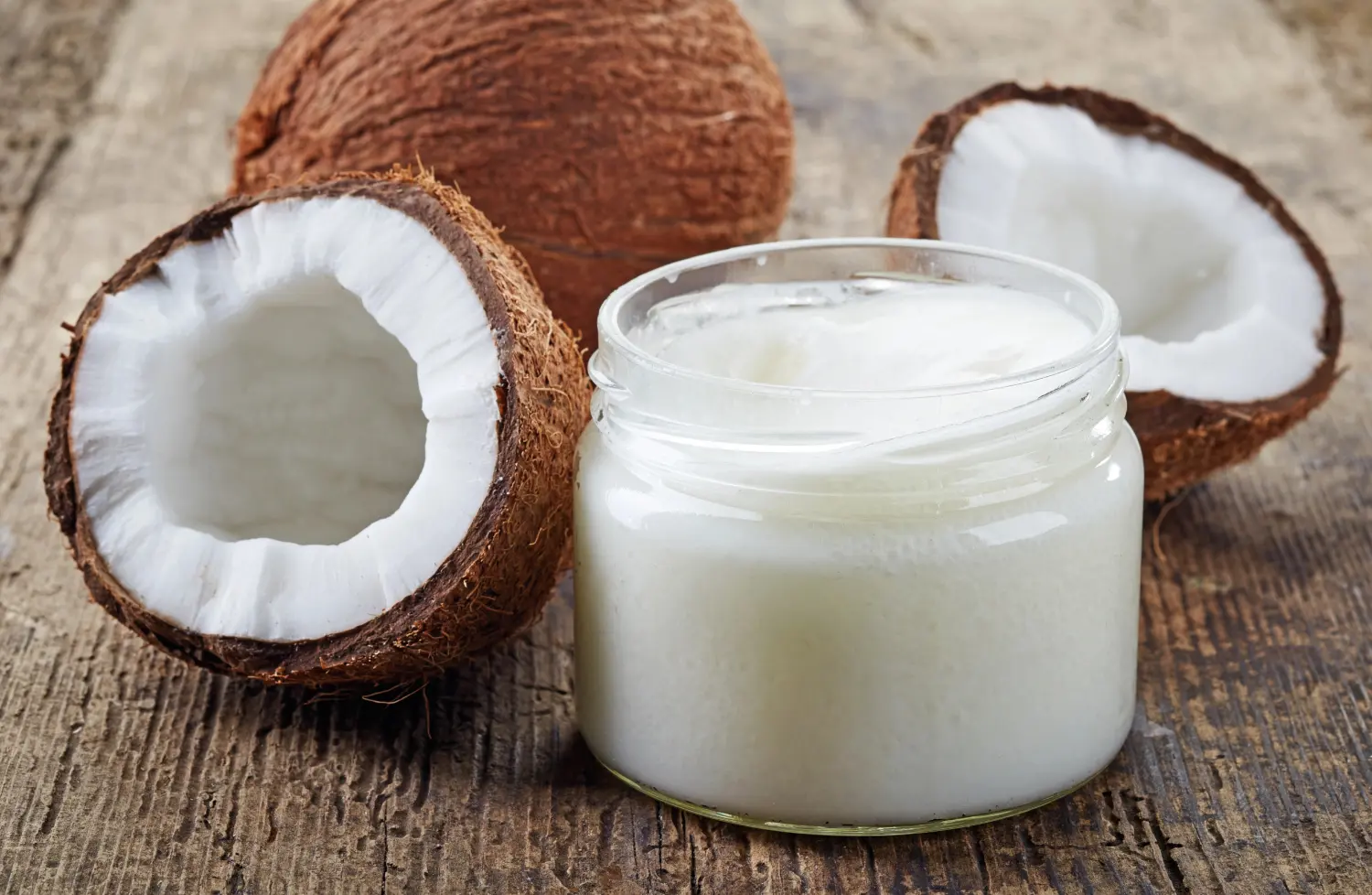
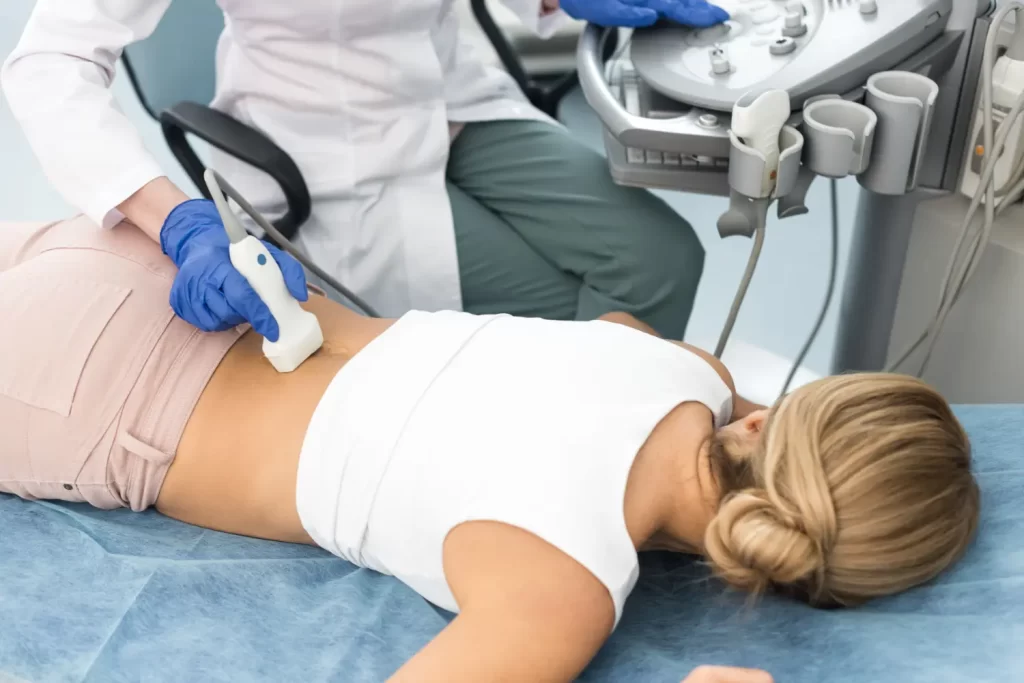 Menopause brings significant hormonal shifts, and one area often overlooked is its impact on kidney health. As estrogen levels decline, the risk of kidney-related issues, including high blood pressure and reduced filtration efficiency, increases.
If you're navigating menopause, maintaining kidney health is essential for overall well-being. By adopting the right lifestyle, dietary habits, and holistic approaches, you can protect your kidneys and reduce potential complications.
Menopause brings significant hormonal shifts, and one area often overlooked is its impact on kidney health. As estrogen levels decline, the risk of kidney-related issues, including high blood pressure and reduced filtration efficiency, increases.
If you're navigating menopause, maintaining kidney health is essential for overall well-being. By adopting the right lifestyle, dietary habits, and holistic approaches, you can protect your kidneys and reduce potential complications.
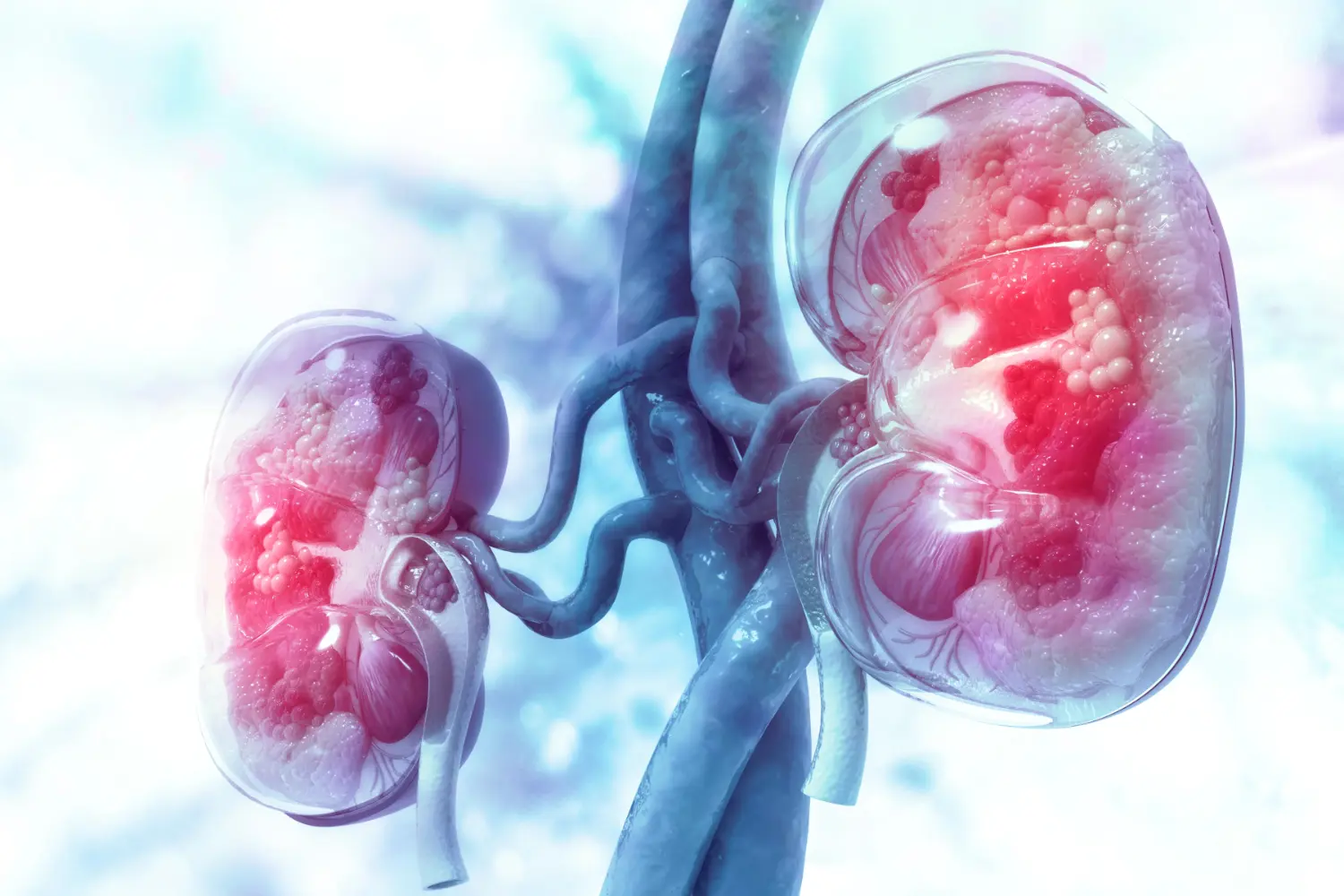
Related Articles
* These statements have not been evaluated by the Food and Drug Administration. This product is not intended to diagnose, treat, cure or prevent any disease.